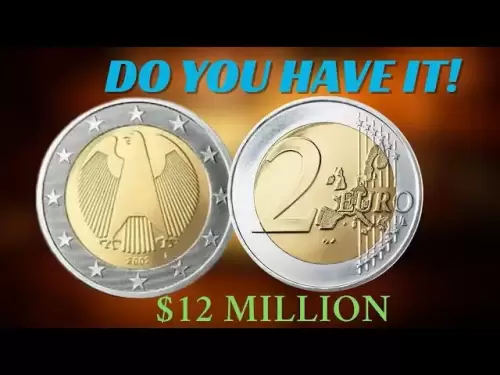-
 Bitcoin
Bitcoin $118400
0.39% -
 Ethereum
Ethereum $3814
2.17% -
 XRP
XRP $3.547
1.34% -
 Tether USDt
Tether USDt $1.000
0.00% -
 BNB
BNB $769.5
2.95% -
 Solana
Solana $191.7
6.36% -
 USDC
USDC $0.9999
0.01% -
 Dogecoin
Dogecoin $0.2722
7.75% -
 Cardano
Cardano $0.8995
5.59% -
 TRON
TRON $0.3158
-0.78% -
 Hyperliquid
Hyperliquid $47.37
4.46% -
 Stellar
Stellar $0.4848
3.54% -
 Sui
Sui $4.031
1.72% -
 Chainlink
Chainlink $20.11
3.94% -
 Hedera
Hedera $0.2832
3.16% -
 Avalanche
Avalanche $26.20
4.27% -
 Bitcoin Cash
Bitcoin Cash $530.5
0.67% -
 Shiba Inu
Shiba Inu $0.00001568
3.59% -
 Litecoin
Litecoin $118.4
1.42% -
 UNUS SED LEO
UNUS SED LEO $8.976
-0.23% -
 Toncoin
Toncoin $3.349
2.54% -
 Polkadot
Polkadot $4.590
2.54% -
 Uniswap
Uniswap $10.56
-0.59% -
 Ethena USDe
Ethena USDe $1.001
0.00% -
 Monero
Monero $327.7
0.39% -
 Pepe
Pepe $0.00001422
2.62% -
 Bitget Token
Bitget Token $4.973
-1.22% -
 Dai
Dai $1.000
0.02% -
 Aave
Aave $331.9
1.59% -
 Bittensor
Bittensor $429.6
-0.56%
How to keep my NFTs safe?
To protect your NFTs, use a secure wallet like Ledger or Trezor, enable 2FA, and never share recovery phrases or connect to unverified platforms.
Jul 09, 2025 at 10:07 am
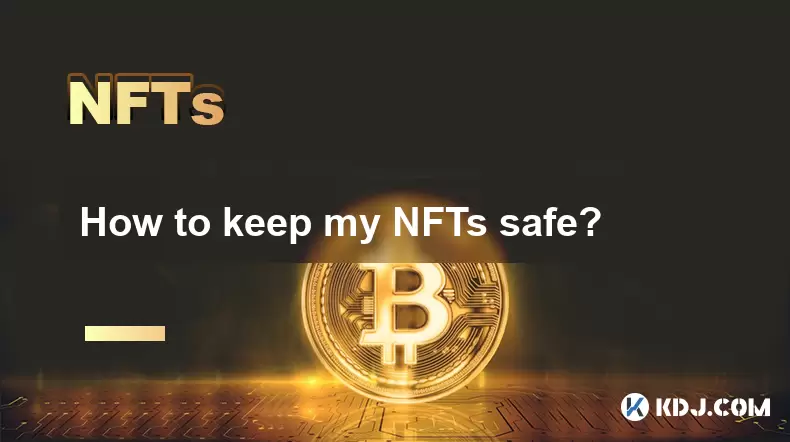
Understanding the Risks Associated with NFTs
When it comes to NFTs (Non-Fungible Tokens), security is a top priority for collectors and investors. Unlike traditional digital files, NFTs represent unique ownership of digital assets, which makes them valuable targets for hackers and scammers. Understanding the risks involved in owning NFTs helps you better protect your investments.
One of the most common threats includes phishing attacks, where malicious actors trick users into revealing their wallet credentials. Another risk involves fake marketplaces or scams that mimic legitimate platforms. Additionally, insecure private keys can lead to irreversible loss of access to your NFTs.
Choosing a Secure Wallet
To keep your NFTs safe, selecting a secure wallet is essential. There are two main types of wallets: hot wallets (online) and cold wallets (offline). Hot wallets like MetaMask are convenient but more vulnerable to online attacks. Cold wallets such as Ledger Nano S or Trezor offer enhanced security since they store private keys offline.
Make sure to:
- Use hardware wallets for long-term storage
- Avoid sharing recovery phrases with anyone
- Regularly update wallet software
Never store large amounts of NFTs or cryptocurrency in exchange wallets, as these are often targeted by hackers. Always double-check the wallet address before sending any assets.
Securing Your Private Keys and Recovery Phrases
The foundation of NFT security lies in the protection of private keys and recovery phrases. These are essentially the passwords that grant access to your wallet. If someone gains access to your recovery phrase, they can take full control of your wallet and all its contents.
Best practices include:
- Storing recovery phrases in a physical, secure location (not on a computer)
- Using encrypted backups
- Avoiding screenshots or digital copies stored online
Some users opt for multi-signature wallets, which require multiple approvals to execute transactions. This adds an extra layer of protection against unauthorized access.
Recognizing Scams and Fraudulent Platforms
The NFT space has attracted many bad actors looking to exploit inexperienced users. It's crucial to be able to identify scam websites, fake NFT drops, and phishing attempts. Always verify the authenticity of a platform before connecting your wallet or making a purchase.
Signs of potential scams include:
- Offers that seem too good to be true
- Urgent messages claiming account suspension
- Links sent via social media or email asking for wallet access
Use browser extensions like MetaMask’s phishing detection and always check official communication channels for updates from NFT projects you follow.
Using Two-Factor Authentication (2FA)
Enabling Two-Factor Authentication (2FA) on your accounts significantly enhances security. 2FA requires a second form of verification—such as a code generated by an app or sent via SMS—before granting access.
For maximum security:
- Use authenticator apps like Google Authenticator or Authy instead of SMS-based 2FA
- Backup 2FA recovery codes in a secure place
- Enable 2FA on all associated accounts including email and marketplace profiles
This prevents unauthorized access even if your password is compromised.
Keeping Software Updated and Monitoring Activity
Regularly updating your wallet software, operating system, and antivirus programs is critical. Developers frequently release patches for vulnerabilities that could be exploited by attackers.
Additionally:
- Monitor wallet activity regularly for unauthorized transactions
- Set up alerts for any outgoing transfers
- Review connected applications and revoke unnecessary permissions
Many wallets and platforms allow you to view transaction history and manage connected dApps directly from the settings menu.
Frequently Asked Questions
Q: Can I recover my NFTs if I lose my private key?
A: Unfortunately, losing your private key means permanent loss of access to your NFTs. There is no centralized authority to recover lost keys. That’s why backing up your recovery phrase securely is vital.
Q: Is it safe to connect my wallet to any NFT marketplace?
A: No, only connect your wallet to trusted and verified platforms. Always confirm the URL is correct and avoid clicking on suspicious links. Check community forums or official social media for approved marketplace links.
Q: How do I know if an NFT project is legitimate?
A: Research the team behind the project, look for verified social media accounts, and read whitepapers or roadmap documents. Join official Discord or Telegram groups to interact with developers and other collectors.
Q: Should I use the same wallet for multiple NFT activities?
A: It's advisable to use separate wallets for different purposes—for example, one for trading and another for long-term holding. This minimizes risk exposure if one wallet gets compromised.
Disclaimer:info@kdj.com
The information provided is not trading advice. kdj.com does not assume any responsibility for any investments made based on the information provided in this article. Cryptocurrencies are highly volatile and it is highly recommended that you invest with caution after thorough research!
If you believe that the content used on this website infringes your copyright, please contact us immediately (info@kdj.com) and we will delete it promptly.
- Trump Media, Bitcoin, and Congress: A New Era of Crypto Politics?
- 2025-07-22 04:30:12
- Kaspa (KAS) and Cheap Crypto Alternatives: Is Now the Time to Buy?
- 2025-07-22 04:35:12
- Shiba Inu Dreams vs. Bitcoin Solaris Reality: Decoding the Price Explosion Potential
- 2025-07-22 03:50:13
- Riding the Altseason Wave: Crypto Presales and Wallet Raises to Watch
- 2025-07-22 03:50:13
- Dogecoin Price Prediction: Can DOGE Rally to $1 After Recent Surge?
- 2025-07-22 03:55:12
- Crypto Stocks, Stablecoin Law & Trump: A New Era?
- 2025-07-22 02:30:12
Related knowledge
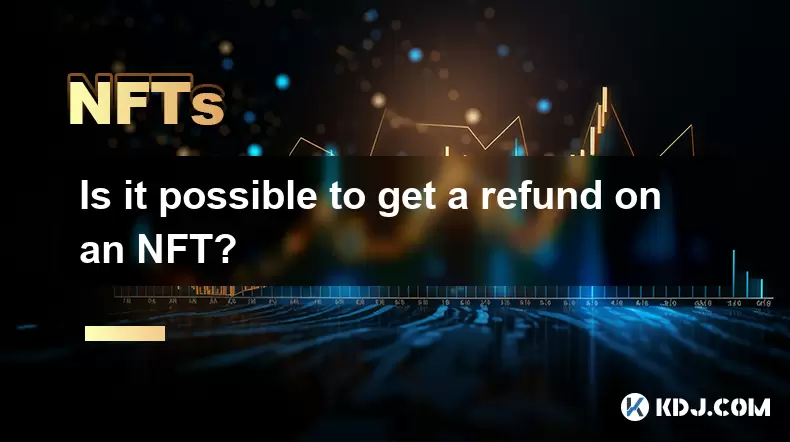
Is it possible to get a refund on an NFT?
Jul 21,2025 at 08:35pm
Understanding NFT Transactions and RefundsWhen you purchase an NFT (Non-Fungible Token), the transaction is typically recorded on a blockchain, making...
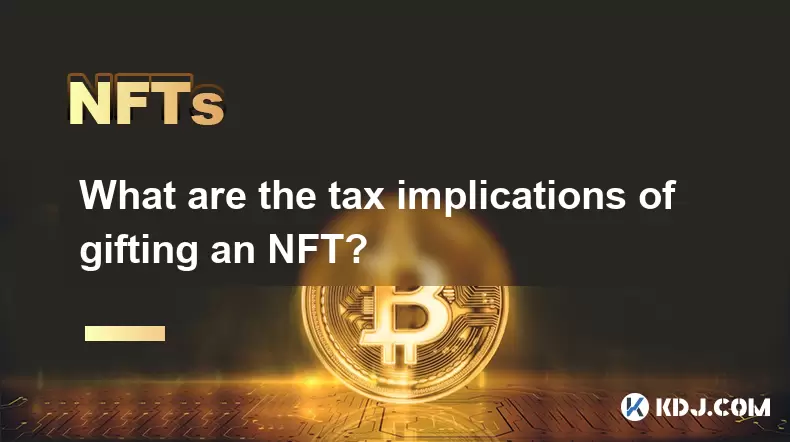
What are the tax implications of gifting an NFT?
Jul 19,2025 at 04:21am
Understanding the Basics of NFT GiftingGifting a Non-Fungible Token (NFT) involves transferring ownership from one individual to another without recei...
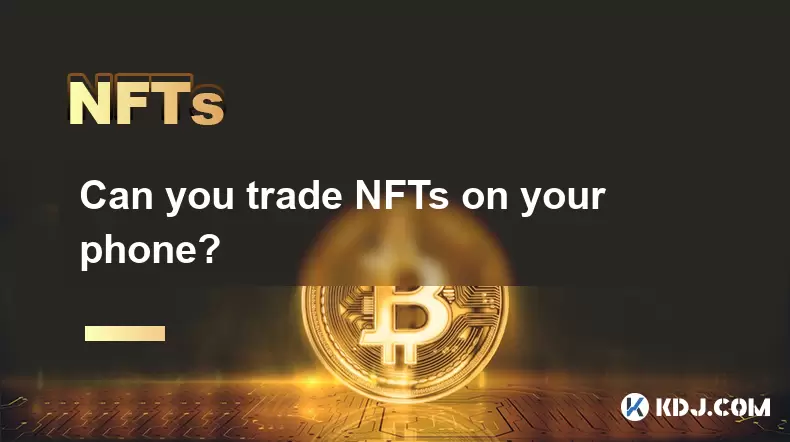
Can you trade NFTs on your phone?
Jul 18,2025 at 04:29am
Trading NFTs on Mobile DevicesYes, you can trade NFTs on your phone, and the process has become increasingly streamlined thanks to a variety of mobile...
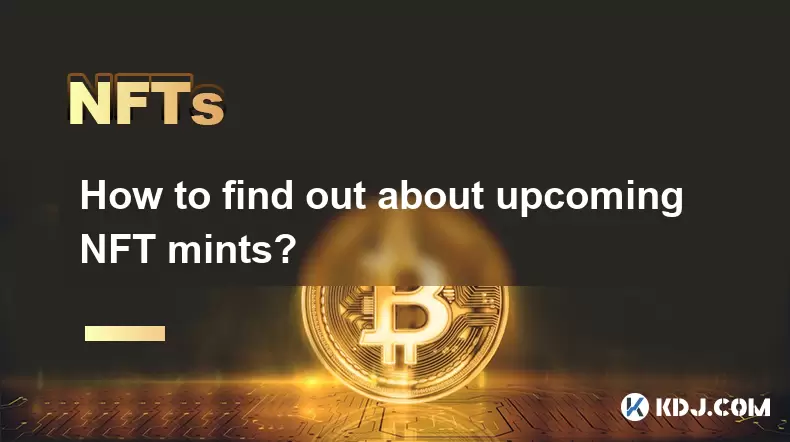
How to find out about upcoming NFT mints?
Jul 18,2025 at 11:50am
Exploring NFT Minting OpportunitiesUnderstanding the landscape of upcoming NFT mints is crucial for collectors, investors, and creators who wish to st...
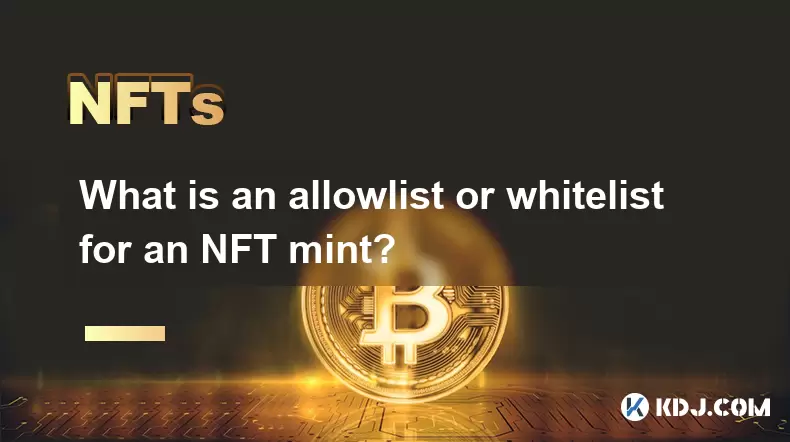
What is an allowlist or whitelist for an NFT mint?
Jul 20,2025 at 07:14pm
Understanding the Concept of an Allowlist for NFT MintingAn allowlist, also commonly referred to as a whitelist, is a mechanism used in the NFT mintin...
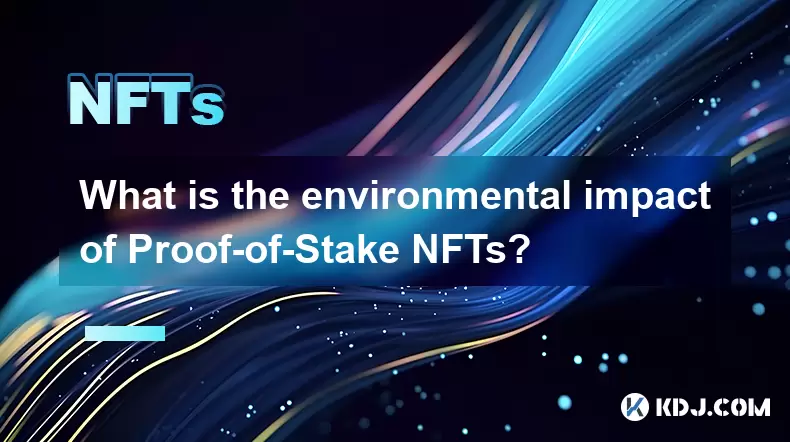
What is the environmental impact of Proof-of-Stake NFTs?
Jul 17,2025 at 07:14pm
Understanding the Basics of Proof-of-Stake NFTsProof-of-Stake (PoS) is a consensus mechanism used by blockchain networks to validate transactions and ...

Is it possible to get a refund on an NFT?
Jul 21,2025 at 08:35pm
Understanding NFT Transactions and RefundsWhen you purchase an NFT (Non-Fungible Token), the transaction is typically recorded on a blockchain, making...

What are the tax implications of gifting an NFT?
Jul 19,2025 at 04:21am
Understanding the Basics of NFT GiftingGifting a Non-Fungible Token (NFT) involves transferring ownership from one individual to another without recei...

Can you trade NFTs on your phone?
Jul 18,2025 at 04:29am
Trading NFTs on Mobile DevicesYes, you can trade NFTs on your phone, and the process has become increasingly streamlined thanks to a variety of mobile...

How to find out about upcoming NFT mints?
Jul 18,2025 at 11:50am
Exploring NFT Minting OpportunitiesUnderstanding the landscape of upcoming NFT mints is crucial for collectors, investors, and creators who wish to st...

What is an allowlist or whitelist for an NFT mint?
Jul 20,2025 at 07:14pm
Understanding the Concept of an Allowlist for NFT MintingAn allowlist, also commonly referred to as a whitelist, is a mechanism used in the NFT mintin...

What is the environmental impact of Proof-of-Stake NFTs?
Jul 17,2025 at 07:14pm
Understanding the Basics of Proof-of-Stake NFTsProof-of-Stake (PoS) is a consensus mechanism used by blockchain networks to validate transactions and ...
See all articles





















